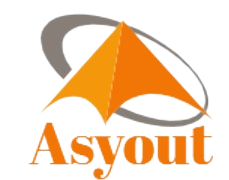Introduction to the Hingham High AI Lawsuit
The hingham high school ai lawsuit has sparked a firestorm of debate, drawing attention to the intersection of technology and civil rights in education. As artificial intelligence increasingly finds its way into classrooms, questions arise about its implications for students’ rights and equality. In Hingham, Massachusetts, this controversy is not just an isolated incident; it reflects broader concerns that many schools face today. Parents, educators, and advocates are closely watching as the case unfolds—curious about what it means for our children’s future in an ever-evolving digital landscape. Let’s dive deeper into this compelling story that raises critical questions about ethics, equity, and innovation in education.
The Role of Artificial Intelligence in Education
Artificial intelligence is reshaping the landscape of education. It offers personalized learning experiences tailored to individual student needs. Adaptive learning platforms analyze performance and adjust content accordingly, making lessons more effective.
AI can automate administrative tasks, freeing educators to focus on teaching rather than paperwork. This efficiency allows teachers more time for engagement with students and crafting dynamic lesson plans.
Moreover, AI tools assist in identifying students who may need extra support. Early detection of learning difficulties can lead to timely interventions, helping all learners thrive.
However, as beneficial as these advancements are, they raise important questions about equity and access. Not every school has equal resources to implement AI effectively. This disparity could create additional barriers for underprivileged students seeking quality education in an increasingly tech-driven environment.
The Controversy Surrounding the Use of AI in Schools
The use of artificial intelligence in schools has sparked intense debate. Advocates argue that AI can personalize learning, catering to individual student needs. This technology offers tailored resources and immediate feedback, which could revolutionize education.
However, critics raise concerns about privacy and surveillance. Many worry that data collected by AI systems may be misused or inadequately protected. The potential for bias within algorithms is another significant issue. If these systems are trained on flawed data, they might perpetuate existing inequalities.
Moreover, the reliance on technology raises questions about teachers’ roles in the classroom. Will educators become mere facilitators while AI takes over teaching duties? The fear of dehumanizing education looms large among some parents and educators alike.
As schools increasingly adopt these technologies, balancing innovation with ethical considerations becomes crucial to ensure a fair educational environment for all students.
Civil Rights Violations and Discrimination in the Hingham High Case
The Hingham High School AI lawsuit raises significant concerns about civil rights and discrimination. At the heart of the case is how technology may inadvertently perpetuate biases.
Students from marginalized backgrounds have reported disparities in treatment. Allegations suggest that AI tools used for monitoring behavior disproportionately flagged minority students. This could lead to unwarranted disciplinary action and further stigmatization.
Critics argue that relying on algorithms without human oversight can exacerbate existing inequalities. When machine learning models reflect societal biases, they risk reinforcing harmful stereotypes rather than promoting fairness.
Many stakeholders are calling for a deeper examination of ethical practices in educational technology. Advocates emphasize the need for transparency and accountability when deploying such systems in schools to protect student rights effectively.
Impact on Students and Teachers Involved
The Hingham High AI lawsuit has created a ripple effect among students and teachers. For students, the uncertainty surrounding their educational environment can be disheartening. Many are concerned that decisions made by AI systems could impact their grades or opportunities unfairly.
Teachers are feeling the pressure as well. They worry about relying on technology that may not fully understand individual student needs. This lack of trust in AI tools complicates classroom dynamics and undermines educators’ roles.
Additionally, some students have voiced feelings of alienation due to perceived biases in AI assessments. The fear is palpable—what if these systems misjudge abilities based on flawed data?
In this tense atmosphere, open dialogue between all parties involved becomes essential for rebuilding trust and ensuring fairness in education moving forward.
Steps Taken Towards Resolving the Issue
Following the emergence of the Hingham High School AI lawsuit, immediate steps were initiated to address the concerns raised. The school district formed a committee comprising educators, parents, and legal experts. Their goal? To analyze current policies surrounding AI technologies in education.
Town hall meetings became a platform for open dialogue. Parents voiced their opinions while students shared personal experiences with AI tools used in classrooms. This collaborative approach aimed to identify potential pitfalls and areas needing improvement.
Simultaneously, workshops were organized for teachers on ethical uses of technology. Training sessions focused on recognizing biases within AI systems and understanding their implications on student learning.
The district also began reviewing its data privacy policies to ensure compliance with civil rights standards. Transparency was prioritized; regular updates kept stakeholders informed throughout this evolving situation, demonstrating commitment toward responsible technological integration in education.
Future Implications and Discussion on Ethics in AI Technology
The Hingham High School AI lawsuit raises profound questions about the intersection of technology and education. As schools increasingly adopt artificial intelligence to streamline administrative processes and enhance student learning, ethical considerations become paramount.
This case exemplifies the potential for bias within AI systems, highlighting a pressing need for transparency in how these technologies are implemented. If not carefully managed, such tools can inadvertently perpetuate discrimination or violate civil rights.
Educators and policymakers must engage in meaningful discussions regarding accountability when deploying AI solutions. It’s essential that all stakeholders—students, parents, teachers, and administrators—are included in conversations about technology’s role in schools.
As we look toward the future, it’s clear that ethical guidelines will be necessary to safeguard students’ rights while harnessing technological advancements. Greater awareness and proactive measures can help ensure that innovations like AI benefit everyone equitably without compromising fundamental principles of justice and fairness in education.
The implications of this lawsuit extend beyond Hingham High School; they serve as a warning to educational institutions everywhere: embracing new technologies comes with responsibilities that cannot be ignored.
FAQs
What is the “Hingham High AI lawsuit”?
The “Hingham High AI lawsuit” involves allegations of civil rights violations related to AI technology used in Hingham High School, raising concerns over bias and discrimination in education.
How is AI being used in schools?
AI in schools personalizes learning, automates tasks, identifies students needing support, and streamlines administrative processes, aiming to enhance efficiency and learning outcomes.
What are the concerns with AI in education?
Concerns include privacy issues, potential bias in AI algorithms, and the fear of technology replacing teachers or exacerbating existing inequalities in the education system.
How has the Hingham High AI lawsuit impacted students?
The lawsuit has caused uncertainty among students, with some fearing biased AI assessments that could unfairly affect their grades, opportunities, and overall educational experience.
What steps are being taken to resolve the issues raised in the lawsuit?
The school district has formed a committee to review AI policies, held town hall meetings for feedback, and implemented workshops for teachers on ethical AI usage to ensure fairness and accountability.







